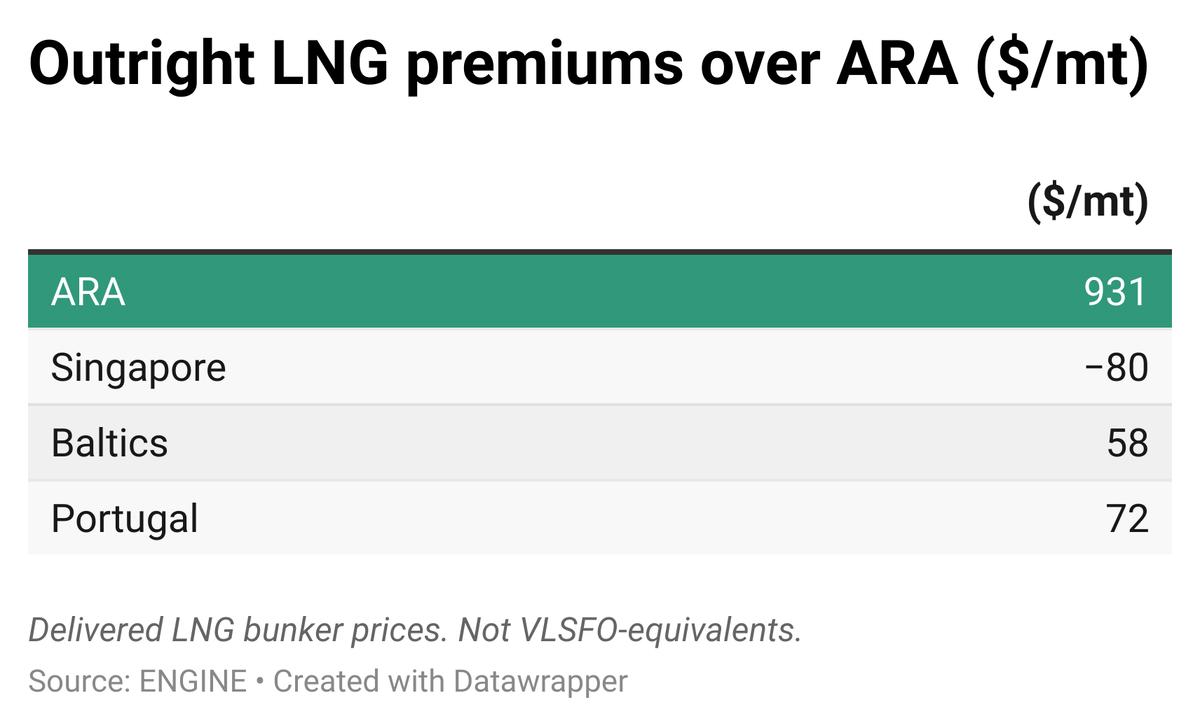LNG Bunker Snapshot: Prices fall on Ukraine peace talks and milder weather
Rotterdam’s LNG bunker price has declined under pressure from peace talks between Ukraine and Russia, while Singapore’s drop is influenced by Europe’s bearish trend and sluggish demand.

Changes in weekly LNG bunker prices:
- Rotterdam down by $24/mt to $931/mt
- Singapore down by $40/mt to $851/mt
Rotterdam
Rotterdam’s LNG bunker price has fallen sharply for a second consecutive week, driven by a nearly 3% drop in the front-month Dutch TTF Natural Gas contract, a key European gas benchmark.
Greg Molnár, gas analyst at the International Energy Agency (IEA), attributed the decline to “the potential softening of EU storage targets, peace talks with Russia and milder weather forecasts for northwest Europe.”
Energi Danmark noted that “following a long cold spell the last weeks, Northern and Central Europe now faces much milder temperatures which will limit demand significantly.”
“Rumors that the EU Commission may publish revised, and likely more flexible, storage targets on 26 February further added to bearish momentum,” Rystad Energy stated.
Singapore
Singapore’s LNG bunker price has dropped sharply over the past week, reaching $851/mt. Asian LNG bunker prices tend to broadly track the NYMEX Japan/Korea Marker (JKM), which declined by $0.77/MMBtu ($40/mt) over the same period, bringing the front-month contract to $14.18/MMBtu ($737/mt).
Singapore's LNG bunker price discount to Rotterdam has widened from $64/mt to $80/mt in just a week.
According to Rystad Energy, “price movements in Asia largely tracked the bearish trend from Europe but were influenced by more nuanced fundamentals.”
The Japan Meteorological Agency forecasts a 70% chance of below-normal temperatures in western Japan and a 60% probability in central regions. But this cold spell is expected to be brief, with temperatures projected to rise in early March.
Meanwhile, temperatures across much of China and South Korea are expected to turn milder by the end of February, leading to lower city gas consumption and household heating demand, the energy intelligence company stated.
“Weak demand in Asia, especially in China, is also adding to the bearish picture,” Molnár added.
By Tuhin Roy
Please get in touch with comments or additional info to news@engine.online






